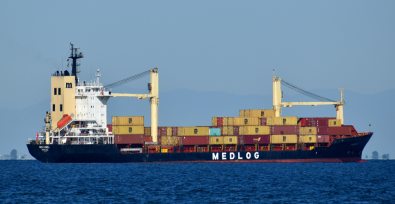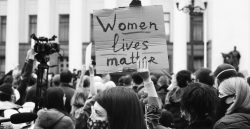In an effort to eliminate goods made with Uyghur forced labor, the U.S. State Department added three more Chinese companies to the list of those facing import bans for goods coming into the U.S. This brings the total number of companies on the list to 27.
Goods from Xinjiang (Uyghur region) are guilty until proven innocent
The legal backing for these restrictions falls under the Uyghur Forced Labor Prevention Act Entity List (UFLPA), which bans the importation of goods into the United States that were produced by companies based in the Uyghur region or identified as having connections to production to it. Unless the importers on the list can prove the goods they are shipping were not produced with forced labor, they are banned from bringing their products into U.S. markets.
Secretary of Homeland Security Alejandro Mayorkas said in a statement via Reuters,
“We do not tolerate companies that use forced labor, that abuse the human rights of individuals in order to make a profit… (and we) will continue to prosecute these companies, fight for the rights of the abused, and work towards the elimination of Uyghur forced labor.”
In another welcome move, as part of the same package, the State Department issued an addendum to its business advisory on Uyghur region supply chains, citing China’s “ongoing genocide and crimes against humanity in Xinjiang and the evidence of widespread use of forced labor there.”
Keeping the global supply chain “fair, just, and secure for all”
Numerous reports from both governmental and non-governmental sources point to the ongoing, widespread, and pervasive risk of forced labor in any supply chain connected to Uyghur region. Investigations and personal accounts have established that the Chinese government has labor camps for Uyghurs and other Muslim minority groups in the region where inmates are forced to work, from harvesting cotton to mining to manufacturing.
The Chair of the Forced Labor Enforcement Task Force, Under Secretary for Strategy, Policy, and Plans Robert Silvers said:
“The United States does not, and will not, tolerate products made with forced labor coming into our country. Through the enforcement actions taken today, the Forced Labor Enforcement Task Force is again making clear our country’s resolve to keep the global supply chain fair, just, and secure for all.”
The three companies recently added were found by the U.S. to be working with the government of Xinjiang to recruit and transport, harbor, or use the forced labor of Uyghurs, Kazakhs, Kyrgyz, or members of other persecuted groups out of the region.
The U.S. State Department stressed the urgency for businesses to be proactive on forced labor in their supply chains and take due diligence measures into their own hands. This includes identifying, assessing, and acting on forced labor and human rights risks for workers on an ongoing basis.
Import bans are nice, but we can do more!
The UFLPA and import restrictions are a great next step toward ending Uyghur forced labor, but this isn’t a one-and-done problem. Over 20 percent of the global apparel’s cotton supply is grown in Uyghur Region, with 84 percent of China’s supply grown in the province. Recent reports implicate at least 83 companies as profiting from the use of forced labor, and as seen by this article, the list just keeps growing.
We need to keep the momentum going and apply pressure from multiple directions to have the Chinese government disband the camps and stop the forced labor and human rights abuses currently taking place in the Uyghur region. Tell companies that have ties to the region in their supply chain that building their products on the backs of Uyghurs and other oppressed minorities is not OK!
Join the Freedom United movement to urge the Chinese government to end the persecution and exploitation of Uyghurs and other marginalized groups through the use of forced labor and other human rights abuses.
Call out brands like Shein, Urban Outfitters, and Apple, sign the petition telling the ten biggest car companies to put people before profits, and call for forced labor-free solar power.







Freedom United is interested in hearing from our community and welcomes relevant, informed comments, advice, and insights that advance the conversation around our campaigns and advocacy. We value inclusivity and respect within our community. To be approved, your comments should be civil.
Hi Linda, thanks for your question! Unfortunately, investigations have shown that TEMU most probably sells forced labor goods. See an article here: https://www.bbc.com/news/business-65990529. Unfortunately, when products are incredibly cheap, we can often assume that someone else is paying the price. We will hold a webinar on this topic soon, so make sure to sign up for our newsletter, if you are interested.
Thanks for your question, Brian. The three companies are Xinjiang Tianmian Foundation Textile Co Ltd, Xinjiang Tianshan Wool Textile Co. Ltd and Xinjiang Zhongtai Group Co. Ltd. You can find more information in the original article, linked in our post.
You mention that three companies have been banned. Which companies—what are their names?
Then why doe usa buy products from Israel, who use forced labour from Palestinians.
All human rights violations should be investigated and responded to, however, the US is the last regime that can criticise human rights of others. According to Human Rights Watch – “ the United States continues to fail to fulfill its human rights commitments, most notably in the area of racial justice as reflected in the country’s failure to end systemic racism linked to the legacies of slavery; abusive structures of incarceration, immigration enforcement, and social control”.